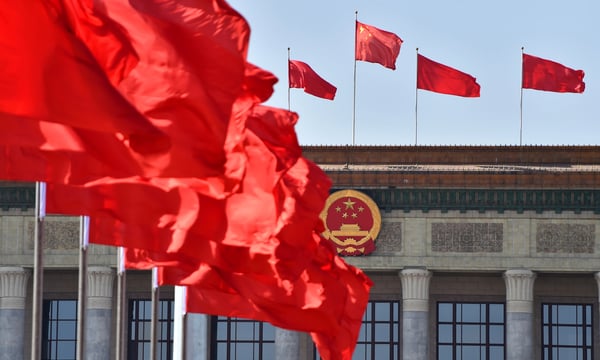China Power | Politics | East Asia
China’s focus on anti-corruption has paralyzed local leaders. The CCP is attempting to address the issue through new rules that aim to regulate the realm of error.
In China, a nation known for five-year plans and centrally choreographed actions, it turns out that what’s really hard to plan for is fear of action. In the last year, Chinese authorities quietly released what can be described as guidance for “getting things wrong the right way” – policy guidelines outlining which mistakes by government officials are permissible and which are not.
The backdrop is President Xi Jinping’s sweeping anti-corruption campaign, which has been ongoing for a decade. In its zealousness to root out graft, the effort has resulted in a bureaucracy-wide freeze, where even mid-level cadres are so worried of missteps that they’ve stopped making decisions altogether. Initiative has become a liability.
In an attempt to address this fear of decision-making, the government issued the “acceptable mistake” policy. Like a teacher handing out a cheat sheet before the exam, the new rules – dubbed, in typical Chinese Communist Party (CCP) nomenclature, the “Three Differentiates” – attempt to distinguish between ideological failings (very bad), criminal corruption (worse), and garden-variety bureaucratic flubs (now considered survivable). Local leaders may misallocate resources, misjudge a local economic policy, or bungle procurement – provided their loyalty remains unimpeachable and their intentions pure.
There is a certain irony to this policy. A government that has spent years reviewing all decisions and punishing officials for the “wrong” ones is now providing a “comfort level of acceptable decision-making” to encourage its officials to take risks.
The stakes are real. China’s economy is underperforming, youth unemployment is high, foreign investment is at an all time low, and the once-unstoppable dynamism of local governments has slowed to a crawl. The tariff situation with the United States is exacerbating issues. China, a country that can send people to the moon and compete in artificial intelligence, is becoming paralyzed by second-guessing.
But there is a deeper layer of irony: namely, that a system built on central control is now running into the limits of that control. You cannot command confidence. You cannot legislate courage. And you certainly cannot unleash creativity when you are worried about your career.
The CCP’s answer to its own overreach is more rules, this time regulating the realm of error. But real leadership, especially in moments of economic uncertainty, demands room for experimentation, for the kind of innovative thinking that cannot be pre-approved by committee.
At a time innovation is happening overnight and uncertainty governs, confidence in decision-making and recommendations is at a premium.
Perhaps this is China’s bureaucratic “Catch-22”: fear of falling out of favor has led to inaction, and inaction is now grounds for falling out of favor. So, to fix the fear, the CCP aims to codify it. Officials may now proceed to make mistakes – but only in the right direction, and only within the confines of an official document.
As Joseph Heller wrote in his novel that coined the phrase “Catch-22”: “Just because you’re paranoid doesn’t mean they aren’t after you.”






